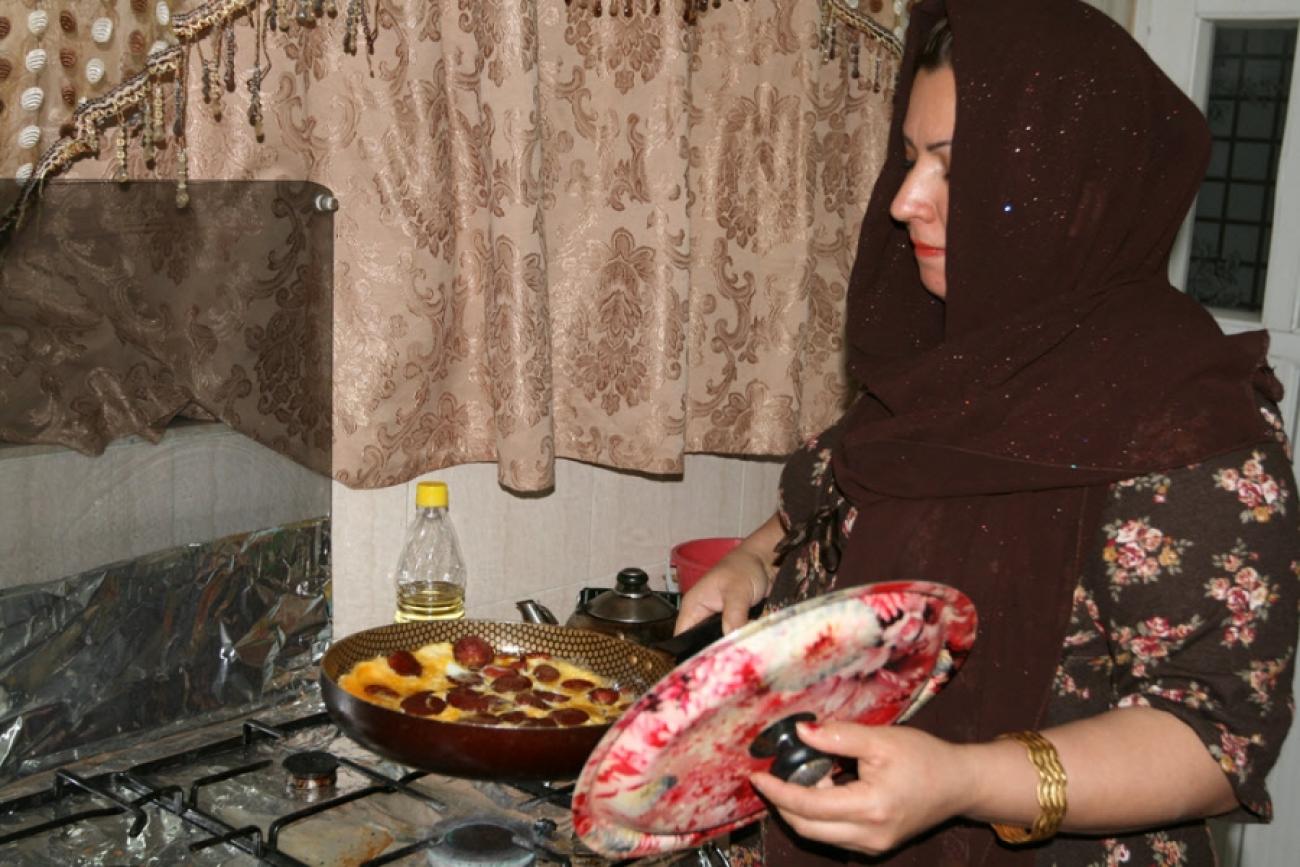To highlight some of the roles that Iraqi women play during difficult economic times, UNAMI talks to Thikrayat Abdullah (Sona), as part of their International Women’s Day celebrations series.
How were you able to start your own business and become successful?
“My mother was giving me money every month to help me cover my needs because my husband’s salary is insufficient to even take care of us till mid-month. I have five (5) children, four daughters and a boy and two of them are in college. Once, I had to sell my wedding ring to buy school supplies for my kids.”
“My mother gave me approximately $100 and I went to the market and bought some cooking ingredients, accessories and cosmetics. I started making pickles. After I sold the first products, I used the profit to buy more ingredients and made larger pickles. Then I started to make new brands of pickles that are not available in Kirkuk; such as the Syrian Makdos, Najaf &Karbala Mudabas and famous ones from Mosul”
“After that, a friend advised me to advertise on Facebook. I started making contacts and buying my products online. Within a week, I was making good profits. It was an adventure but I will say the success comes from being committed. After the kids go to bed, I work until early morning. I sleep for 2 hours and then resume my work. Sometimes, I work on emergency battery lights or candles and lantern.”
Going by the adage, ‘hard work pays’, Sona, who appears to be in her mid-thirties, knows it all. Within a year of starting her own business, she was able to pay off half of her family’s debt, send one of her daughters to a private medical school and renovate their house. She has participated in food contests online and has been invited to Baghdad, to sign and launch her first poetry book. Simultaneously, she makes time to support her fellow women.
How have you helped other women to become economically strong?
“On my off days, I answer questions from women on different issues. We talk about cooking techniques and look at ways of saving money that could be used for emergencies. Sometimes, we talk about preparing specific food on low budget. I also invite women who are interested in the cooking industry to selling groups so that I can guide and support them. One of them is a displaced woman from Ramadi who is very good in pastries.”
.............................
Interview and translation done by Harith Alobidi and Nafea Azeez/UNAMI PIO. Story edited by Celia Thompson/UNAMI PIO


